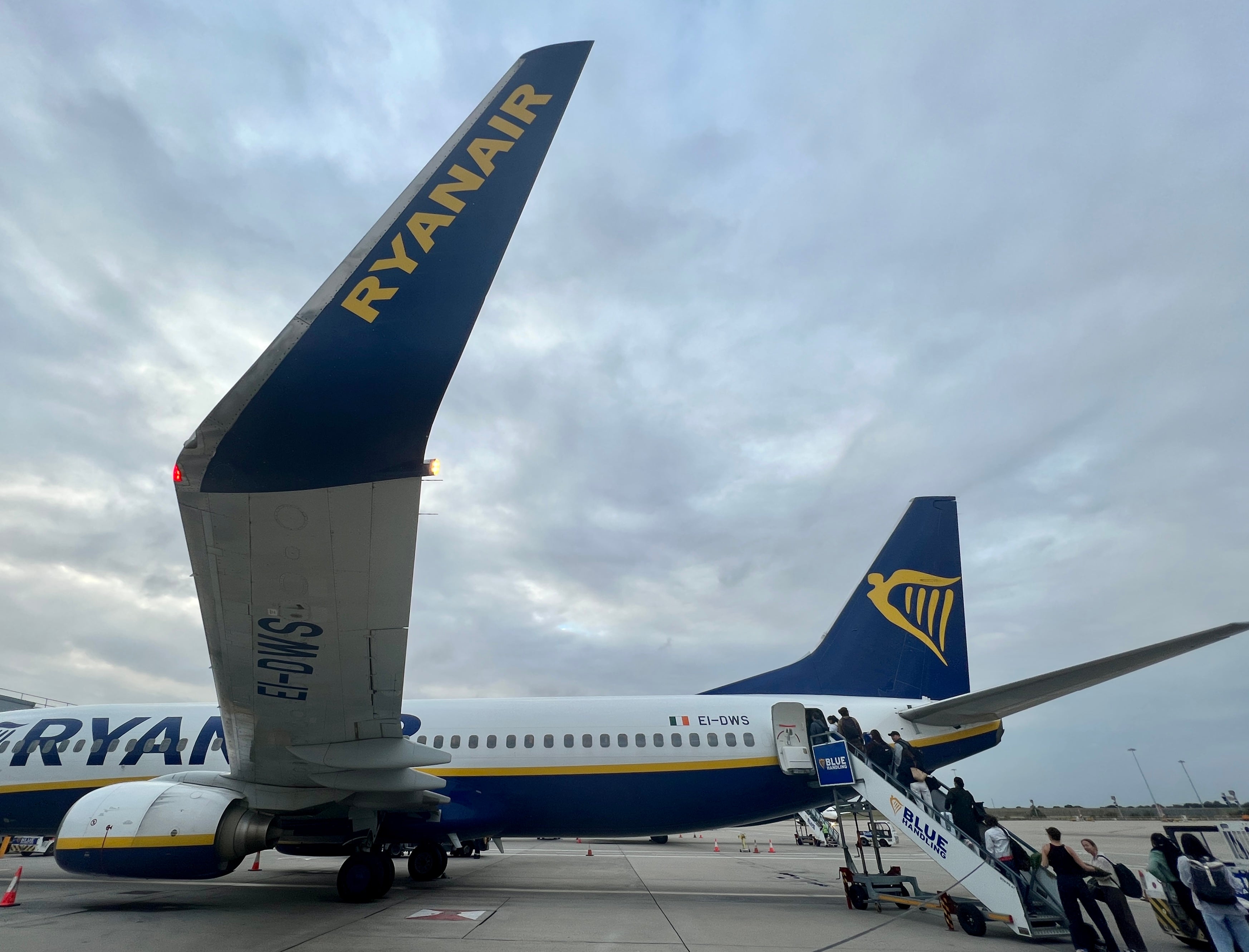Ryanair makes £120 profit per second over summer as fares soar by 24%
Passengers boarded at an average rate of 400 per minute between April and September

Your support helps us to tell the story
From reproductive rights to climate change to Big Tech, The Independent is on the ground when the story is developing. Whether it's investigating the financials of Elon Musk's pro-Trump PAC or producing our latest documentary, 'The A Word', which shines a light on the American women fighting for reproductive rights, we know how important it is to parse out the facts from the messaging.
At such a critical moment in US history, we need reporters on the ground. Your donation allows us to keep sending journalists to speak to both sides of the story.
The Independent is trusted by Americans across the entire political spectrum. And unlike many other quality news outlets, we choose not to lock Americans out of our reporting and analysis with paywalls. We believe quality journalism should be available to everyone, paid for by those who can afford it.
Your support makes all the difference.Ryanair, Europe’s biggest budget airline, has reported a 59 per cent rise in summer profits. Average fares soared by 24 per cent between April and September. In addition, the airline carried record summer passenger numbers and had fewer empty seats on its aircraft.
Reporting results for the first half of its financial year, Ryanair said profits after tax rose from €1.37bn (£1.19bn) in 2022 to €2.18bn (£1.89bn) in 2023 – representing earnings of £120 per second.
Last week British Airways reported a profit for the first nine months of 2023 of £50 per second.
Ryanair carried 105.4 million passengers during the six summer months – an average rate of 400 per minute boarding the airline’s flights. The “load factor” rose by 1 per cent to 95 per cent, representing around 10 empty seats on the average aircraft.
Costs rose by the same amount as fares, 24 per cent – due to more expensive fuel, higher staff costs and increased air-traffic control and airport handling charges.
Fares for the remainder of the year are expected to be about 15 per cent higher than 2023 – with bookings described as “robust” into the peak Christmas travel period.
Overall seat availability is expected to be constrained by air-traffic control limits and aircraft in “competitor fleets” taken out of service for repairs to some Pratt & Whitney engines.
Michael O’Leary, the chief executive, renewed his attack on what he called “Europe’s inefficient ATC [air-traffic control] system”. He said reform “is one of the most significant environmental initiatives the EU can deliver”.
So far this year, he said, strikes by French air-traffic controllers had hit flights on more than 60 days. The Ryanair CEO says the French authorities favour domestic flights and disproportionately cancel “overflights” such as links between the UK and Spain.
In September, Mr O’Leary delivered a petition signed by 1.5 million passengers demanding that “overflights” should be protected.
“Sadly, we have yet to see any action from President Ursula von der Leyen on this key environmental initiative,” he said.
Mr O’Leary also predicted that airline mergers will accelerate, saying: “We expect European airlines will continue to consolidate over the next two to three years, with the takeover of ITA (Italy) and the sale of TAP (Portugal) and SAS (Scandinavia) already under way.”
Ryanair now has a fleet of 563 aircraft – up from 305 a decade ago. The target in 2034 is to have 800 planes, including 300 larger Boeing 737 Max-10 aircraft. But in the short term the chief executive said he is “concerned” that 10 of 57 new Boeing jets ordered for delivery ahead of next summer may be delayed.
Join our commenting forum
Join thought-provoking conversations, follow other Independent readers and see their replies
Comments